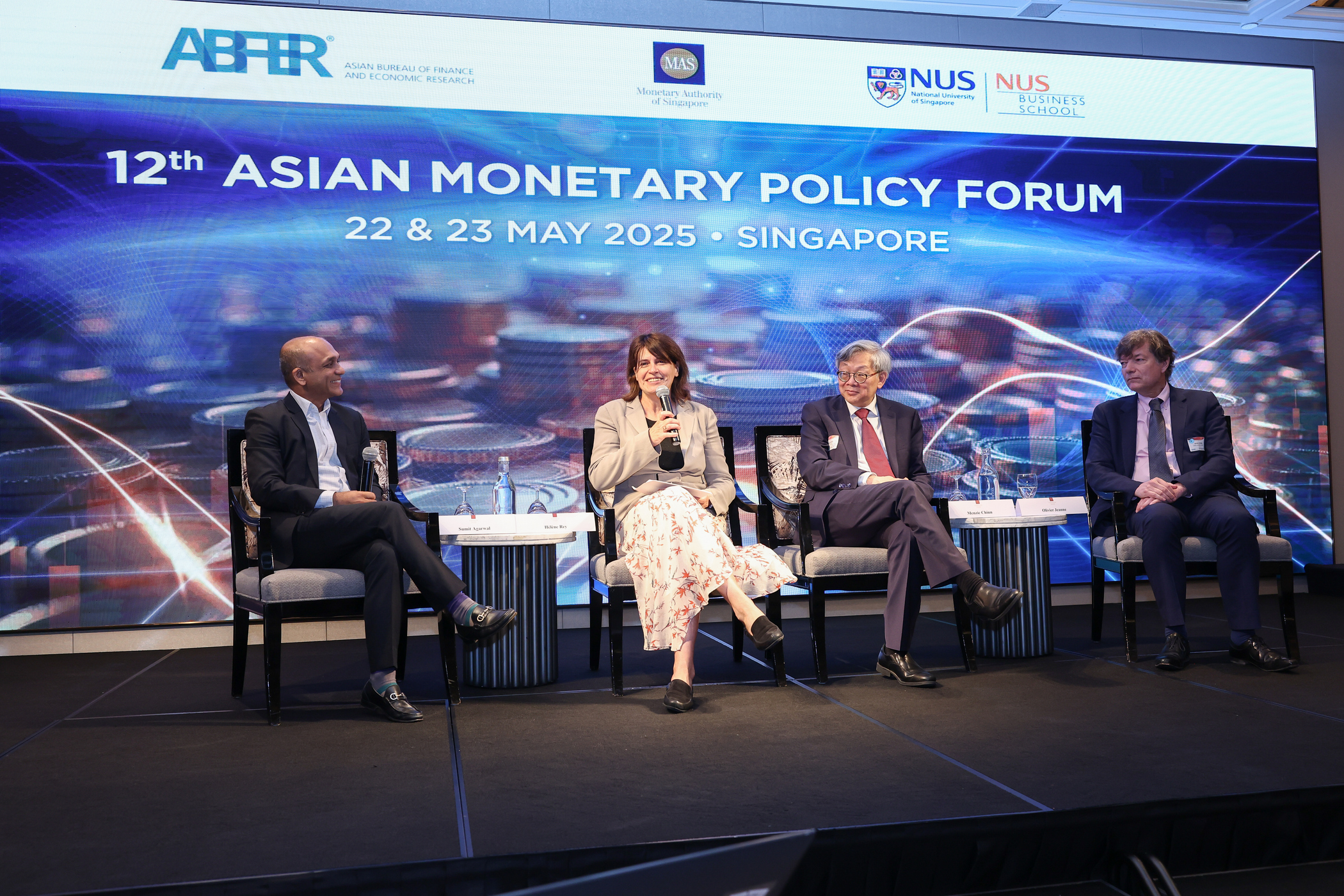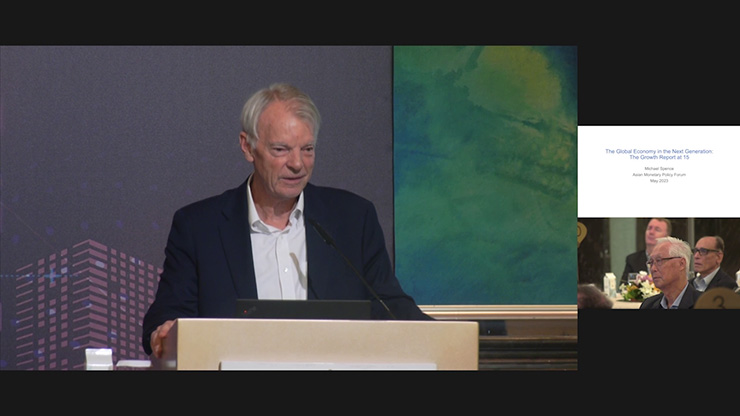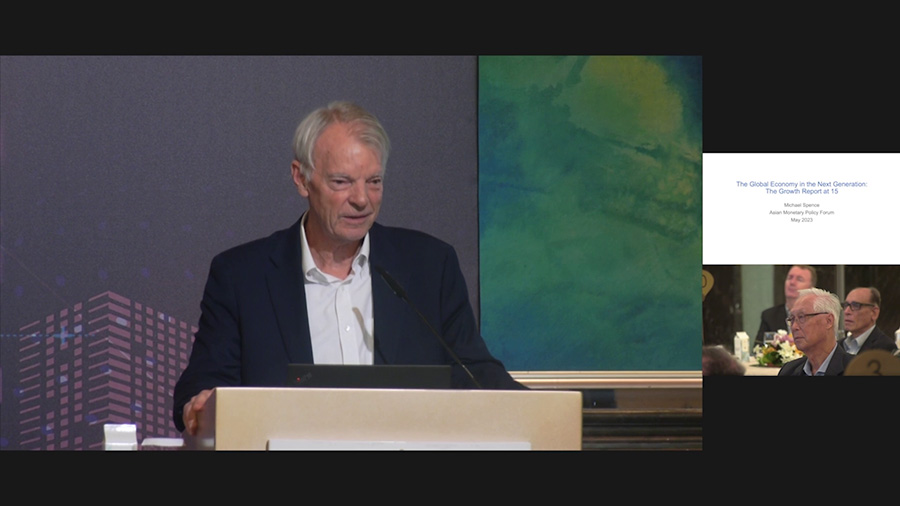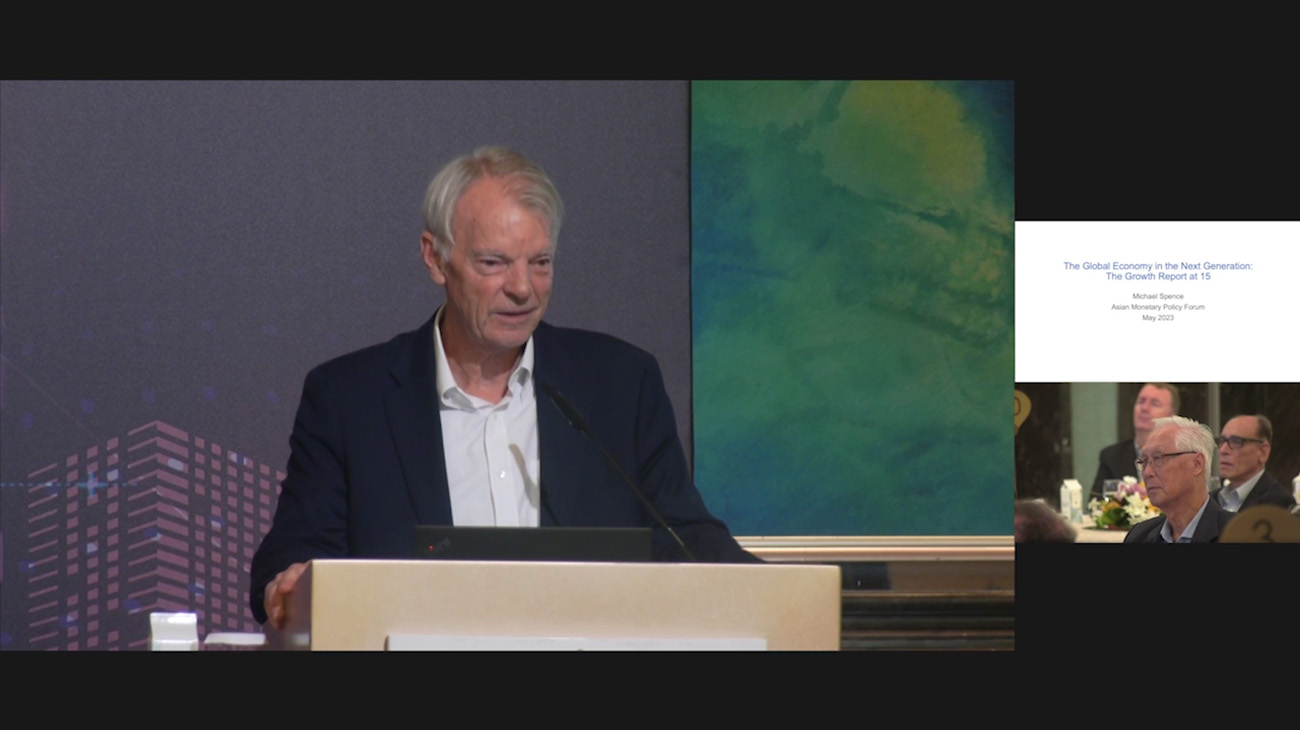
Global Growth & Financial Strategy: From Classical Uncertainty to Quantum Technology
With Fintech all the rage, there is much buzz about how innovations such as artificial intelligence, machine learning and block chain will disrupt the finance industry. While almost everyone in the finance industry is gushing about having a digital strategy, is there a consistent understanding of what these terms mean and their implications on the next-generation of financial services and products? The Asian Bureau of Financial and Economic Research has assembled a panel of the leading academic and financial experts to sift through the facts and fallacies of disruption to our industry in this current “Fake News” era.
They will shed light on:
- The issues and challenges with respect to Blockchain and its Economics;
- The link between economic growth and research activity, new technologies and ideas (or the lack thereof)
- The challenges in employing advanced Machine Learning and AI to build predictive financial and investment models
- How digital transformation and new technologies across sectors and asset classes are affecting banking and institutional investing.
2018
Speakers
-
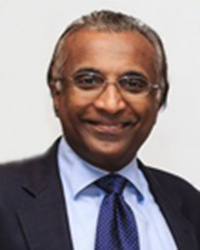
Professor Joseph Cherian (Moderator)
Practice Professor of Finance and Director of the Centre for Asset Management Research & Investments (CAMRI) at NUS Business School, National University of Singapore
Joseph Cherian Joseph Cherian is Practice Professor of Finance and Director of the Centre for Asset Management Research & Investments (CAMRI) at NUS Business School, where he also serves on the School's Executive Education Board. He was formerly an Executive-in-Residence at Cornell University's Johnson Graduate School of Management (2008 – 2009), where he remains an Emeritus member of the Johnson Dean's Advisory Council after serving two terms (2009 – 2017).
Prior to that, Joe was Managing Director, Global Head, and CIO of the Quantitative Strategies Group within Credit Suisse Alternative Investments in New York, where he had direct responsibility for over US$67 billion in client assets managed to a quantitative discipline. While at Credit Suisse, Joe also served on the Global Executive Committee and various senior management, investments, and risk committees of the Asset Management division. Joe joined Credit Suisse in 2004 from Banc of America Capital Management, also in New York, where he was Managing Director and Senior Portfolio Manager of their asset allocation funds. Previously, he was an Associate Professor of Finance at Boston University. He has authored numerous articles for financial journals, and serves on the Scientific Advisory Board of Nipun Capital, a boutique hedge fund based in San Francisco. Joe has or had appointments at the Ministry of Manpower's CPF Advisory Panel, the Singapore International Mediation Centre's Panel of Technical Experts, the National Research Foundation's Early Stage Venture Fund Evaluation Panel, the SNEC/SERI Medical Director’s Advisory Council in Singapore; the Melbourne Mercer Global Pension Index (MMGPI) Steering Committee in Australia; the United Nations Social Impact Fund (UNDP-UNSIF) Research Council and the Journal of Alternative Investments' Editorial Board in the US. He formerly served as a review board member of the Research Foundation of the CFA Institute, and on the Scientific Advisory Boards of net Decide Corp., a pioneering RoboAdvisory firm, Orissa Group, a pioneer in the development and dissemination of liquidity-based data and analytical products across multiple asset classes, and SKG Inc., all based in the US. Joe holds a B.S. in Electrical Engineering from MIT, and M.S. and Ph.D. degrees in Finance from Cornell University. -
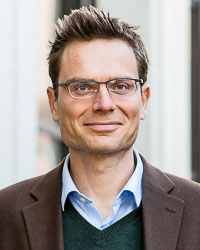
Professor Nicholas Bloom
William Eberle Professor of Economics, Stanford University
Nicholas (Nick) Bloom is the William Eberle Professor of Economics at Stanford University, a Senior Fellow of SIEPR, and the Co-Director of the Productivity, Innovation and Entrepreneurship program at the National Bureau of Economic Research. His research focuses on management practices and uncertainty. He previously worked at the UK Treasury and McKinsey & Company.
He is a Fellow of the American Academy of Arts and Sciences, and the recipient of the Alfred Sloan Fellowship, the Bernacer Prize, the European Investment Bank Prize, the Frisch Medal, the Kauffman Medal and a National Science Foundation Career Award. He has a BA from Cambridge, an MPhil from Oxford, and a PhD from University College London.
On the personal side he is English, living with his Scottish wife and American kids on Stanford campus, in a multi-lingual English household. -
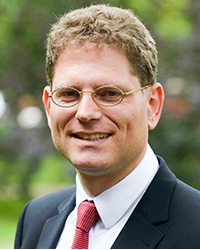
Professor Markus K. Brunnermeier
Edwards S. Sanford Professor of Economics and Director of the Bendheim Center for Finance, Princeton University
Markus K. Brunnermeier is the Edwards S. Sanford Professor at Princeton University. He is a faculty member of the Department of Economics and director of Princeton's Bendheim Center for Finance. He is also a research associate at NBER, CEPR, and CESifo and a member of the Bellagio Group on the International Economy. He is a Sloan Research Fellow, Fellow of the Econometric Society, Guggenheim Fellow and the recipient of the Bernácer Prize granted for outstanding contributions in the fields of macroeconomics and finance. He is/was a member of several advisory groups, including to the IMF, the Federal Reserve of New York, the European Systemic Risk Board, the Bundesbank and the U.S. Congressional Budget Office. Brunnermeier was awarded his Ph.D. by the London School of Economics (LSE).
His research focuses on international financial markets and the macroeconomy with special emphasis on bubbles, liquidity, financial and monetary price stability. To explore these topics, his models incorporate frictions as well as behavioral elements. He has been awarded several best paper prizes and served on the editorial boards of several leading economics and finance journals. He has tried to establish the concepts: liquidity spirals, CoVaR as co-risk measure, the Volatility Paradox, Paradox of Prudence, ESBies, financial dominance and the redistributive monetary policy. His recent book is titled "The Euro and the Battle of Ideas". -

Mr Tse Koon Shee
Managing Director, Group Head, Strategy and Planning, DBS Bank
Mr Shee Tse Koon is the Managing Director and Head of Group Strategy and Planning at DBS. He has 23 years of experience in the banking industry and has worked in several countries in Asia, the Middle East and the United Kingdom. Prior to joining DBS, Mr Shee held a diverse range of senior positions at Standard Chartered, including CEO of Indonesia, COO coveringMiddle East, Africa, Europe & Americas, as well as Chief Information Officer and Head of Technology and Operations in Singapore. He has also held the position of Regional Head of Trade, based in Singapore.
-

Dr Fanesca Young
Head of Global Systematic Equities, GIC
Fanesca Young leads the Global Systematic Equities team at GIC and is responsible for the management of long-only, active extension and market neutral systematic equity strategies, Prior to joining GIC, Dr. Young was a Principal at Los Angeles Capital Management (LACM), and served as Managing Director and Director of Quantitative Research. At LACM, Dr. Young oversaw the firm’s proprietary stock selection model and supervised execution of technical methodologies in the firm’s strategies. In addition, Dr. Young spearheaded LACM’s business development activities in Asia. Dr. Young also serves on the editorial board of the Financial Analyst Journal. She received her doctorate in Statistics from Columbia University and is a CFA charter holder.
- 1
Supported by


